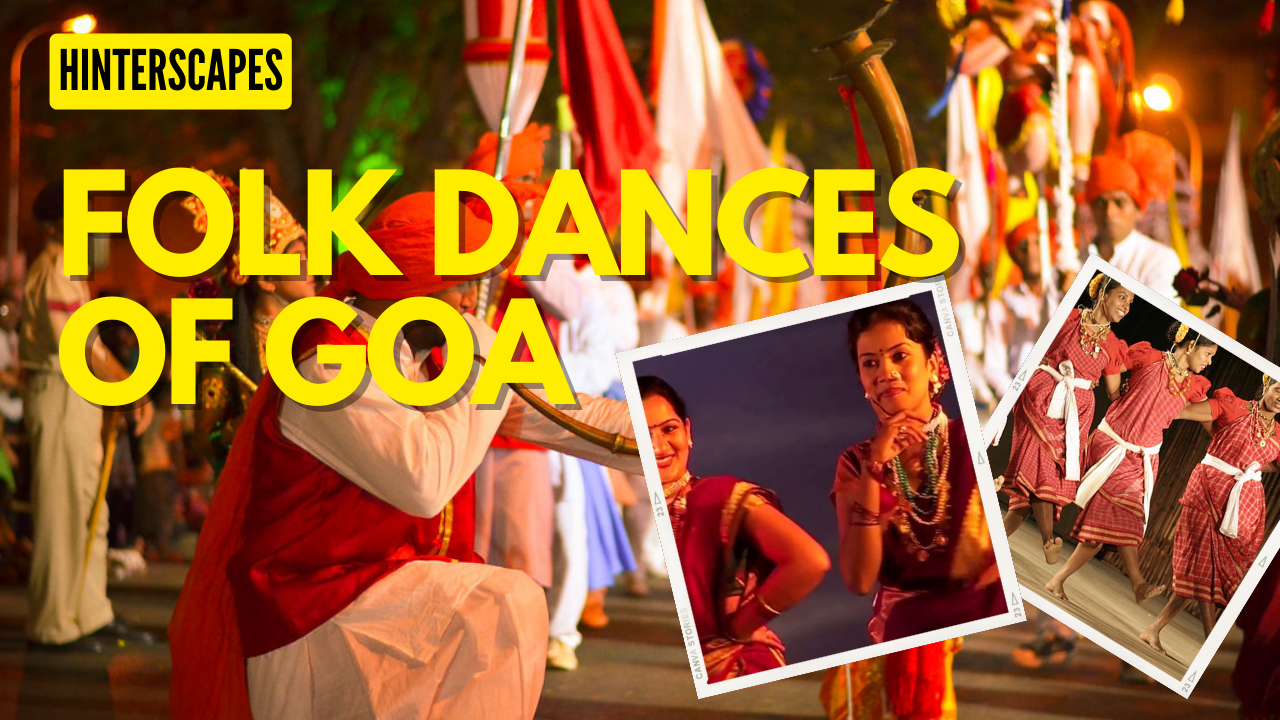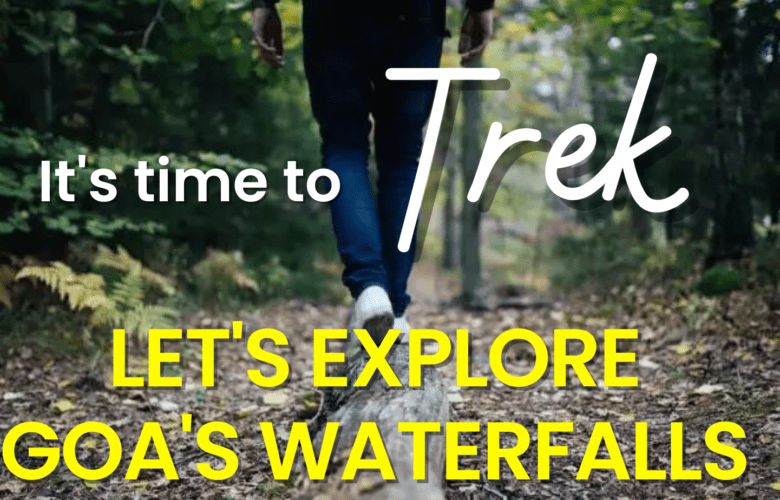- Significance of Goan Folk Dances
- 1. Dekhni – Popular Folk Dance of Goa
- 2. Dashavatara – Tradional Play form in Goa
- 3. Fugdi (Foogdi) – Festival Dance in Goa
- 4. Dhalo – Folk Dance in Goa
- 5. Dhangar Dance – A form of Goan Folk Dances
- 6. Goff – Traditional Dance form of Goa
- 7. Musalam Khel – Folk Dance in Goa
- 8. Kunbi – Folk Dance in Goa
- 9. Divlyan Nach – Most Difficult to Perform amongst Goan Folk Dances
- 10. Veerbhadra – Traditional Play in Goa
- 11. Romta Mel – Festivals in Goa
- 12. Corredinho – Portuguese Influenced Dance Form in Goa
- 13. Ghodemodni – Festival Dance in Goa
Goa’s rich cultural heritage and artistic talents have given birth to a diverse range of music and dance forms. The fusion of Indian and Western culture has resulted in a unique blend of classical and modern music styles that are highly acclaimed across the world. Goan folk dances has it’s unique fan base across the world.
To further promote and enhance Goa’s music and dance scene, it is important to encourage and support local artists and musicians, as well as providing platforms for cultural exchange and collaboration between local and international performers. This could be achieved through organizing regular festivals, concerts, and cultural events, both in rural and urban areas.
In addition, efforts could be made to preserve and document traditional music and dance forms, as well as encouraging young people to learn and practice these art forms. This would not only help in preserving Goa’s cultural heritage but also provide opportunities for young people to showcase their talents and potentially pursue careers in the arts.
Furthermore, modern music styles could be integrated with traditional music to create new and exciting forms of music that appeal to a wider audience. This could involve collaborating with artists from different genres and cultures, as well as utilizing modern technology to produce and promote music.
Overall, Goa’s rich musical and cultural heritage has immense potential to be developed and promoted further. With the right support and initiatives, Goa can become a vibrant hub for music and dance, attracting artists and audiences from across the world.
Significance of Goan Folk Dances
Goa folk dances bear a tradition of thousands of years, characterized by innumerable forms performed by and reflecting lifestyles, cultures, and aspirations of different strata, religions, and castes of Goan society. Women perform a number of traditional dances like Dekni – a rare blend of traditional and modern music. Fugdi and Dhalo are the most common folk dances of Goa. The Kunbi is a tribal folk dance. Women holding lamps on their heads perform the lamp dance during Shigmo festival. Morulem is another traditional folk dance presented by the backward community during Shigmo. The Zagor is a folk play presented in different villages of Goa by the Gawda community. The Dhangar, performed during Navratri, is a vigorous session of worship and dance. Mando is a love song that represents the mingling of Indian and western tradition.
1. Dekhni – Popular Folk Dance of Goa
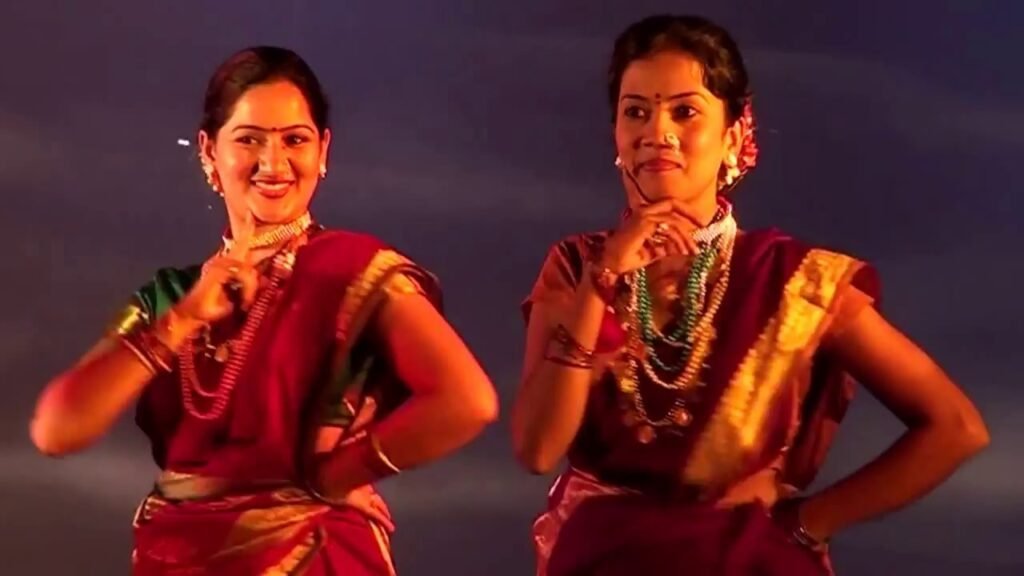
It means bewitching beauty in Konkani. A famous Dekhni song, ‘Hanv Saiba Poltodi Vetam’ took this dance form to the world. It was adapted by the legendary filmmaker Raj Kapoor into ‘Na mangoon Sona Chandi’ for his movie Bobby.
2. Dashavatara – Tradional Play form in Goa
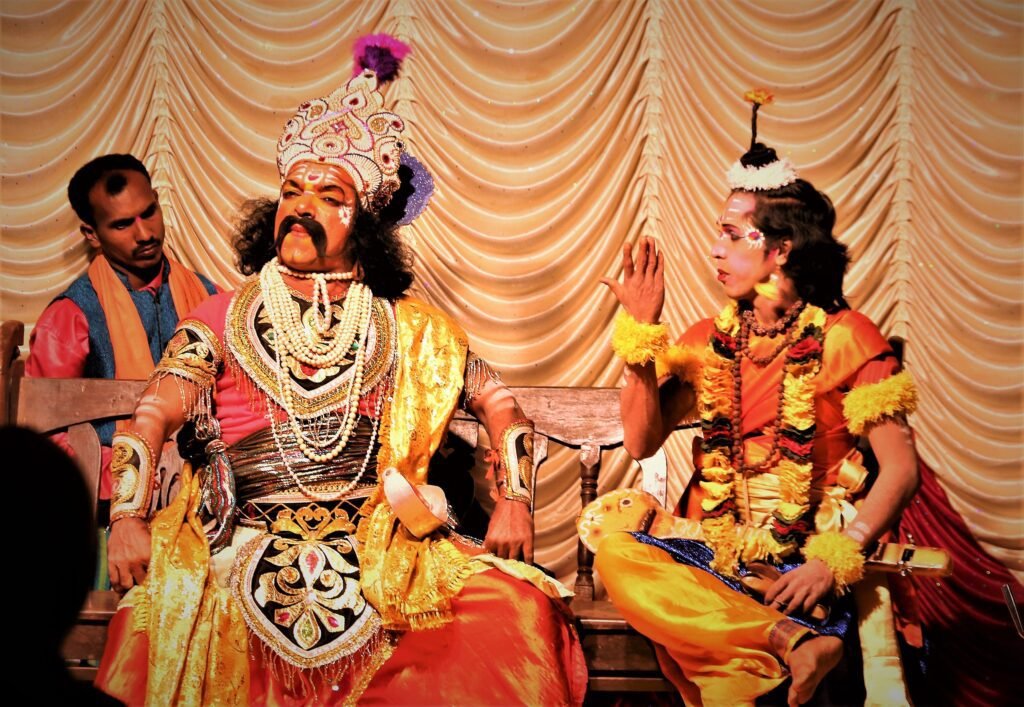
The dance form derives its name from the ten incarnations of Lord Vishnu. Originating in Kerala, this dance was introduced to the Konkan region in the 16th century. The red and white makeup of Dashavatara actors distinguishes them from the spectators.
3. Fugdi (Foogdi) – Festival Dance in Goa
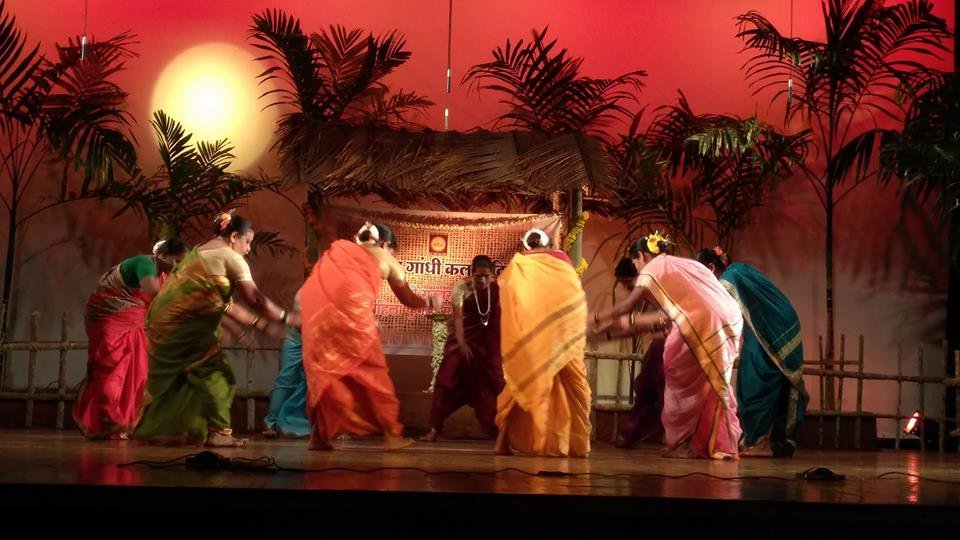
This folk dance brightens up the months of August and September. The exuberant ‘Foo’—the sound made when the dancers match the rhythm by blowing air through their mouths gives the dance its name.
4. Dhalo – Folk Dance in Goa
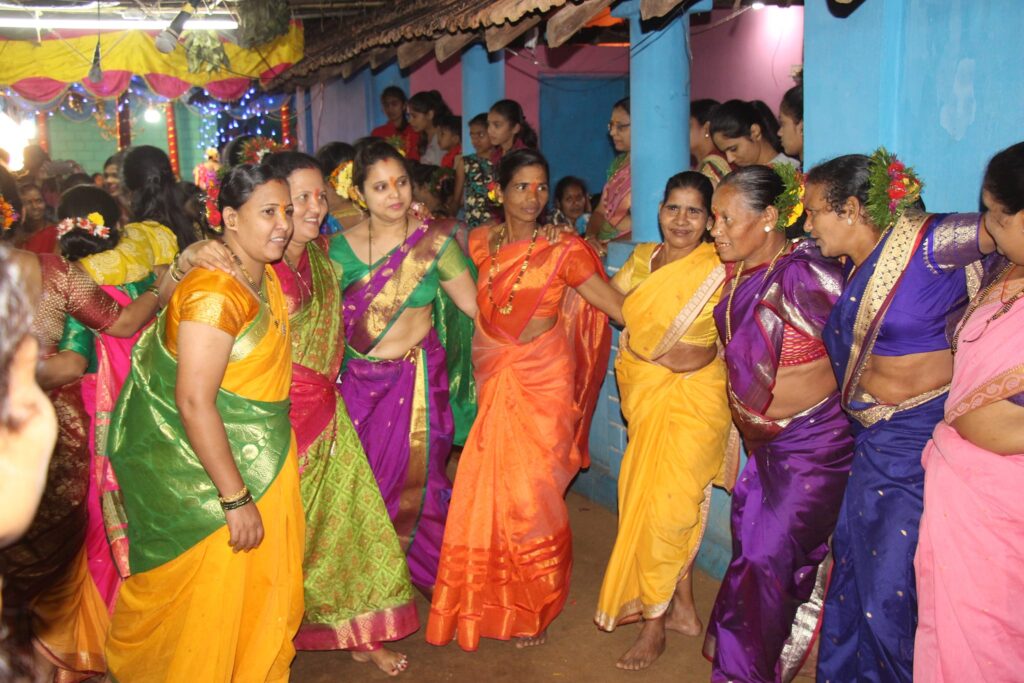
Dhalo is one of Goa’s most popular rural dances, which one can see on a moonlit December night. A dozen women assemble after dinner in the courtyard of a house and dance to folk songs woven with religious and social themes.
5. Dhangar Dance – A form of Goan Folk Dances
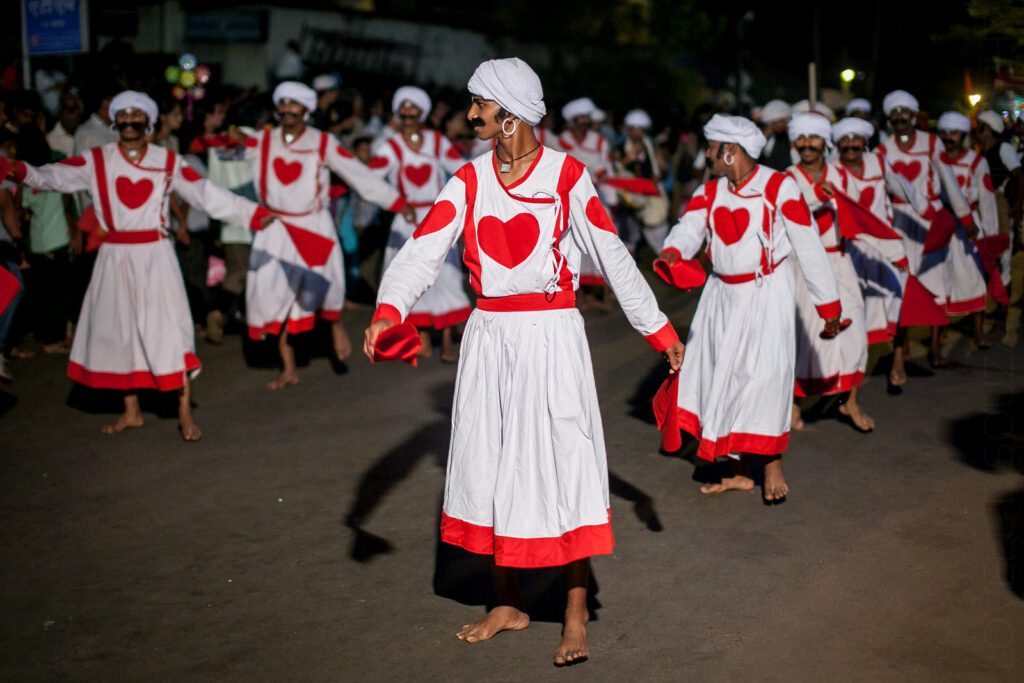
The Dhangars are a shepherd community who migrated long ago from Gujarat and have now settled in the hilly parts of northern Goa. They too observe the festival of Navaratra with exuberance. Performed on the 10th day by men, the dance is like poetry—rhythmic, lyrical and devotional.
6. Goff – Traditional Dance form of Goa
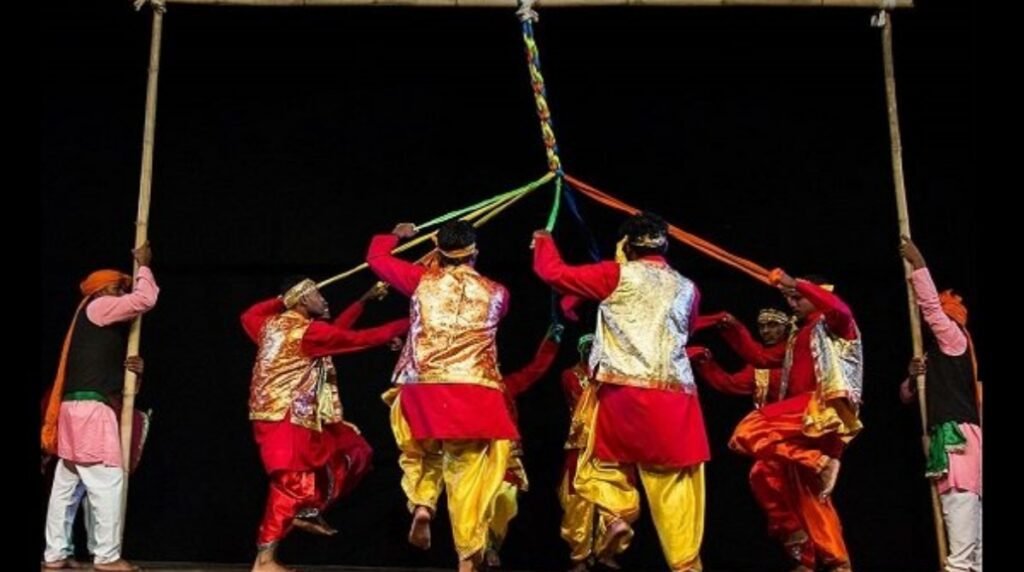
A celebration of a bountiful harvest, each dancer holds a colorful cord hanging at the center of the ‘mand’— the place of performance— forming an intricate braid along with the rest of the artists. In the second phase of the performance, the dancers reverse so that the braid unravels and all the cords are single once again, a masterful feat of coordination.
7. Musalam Khel – Folk Dance in Goa
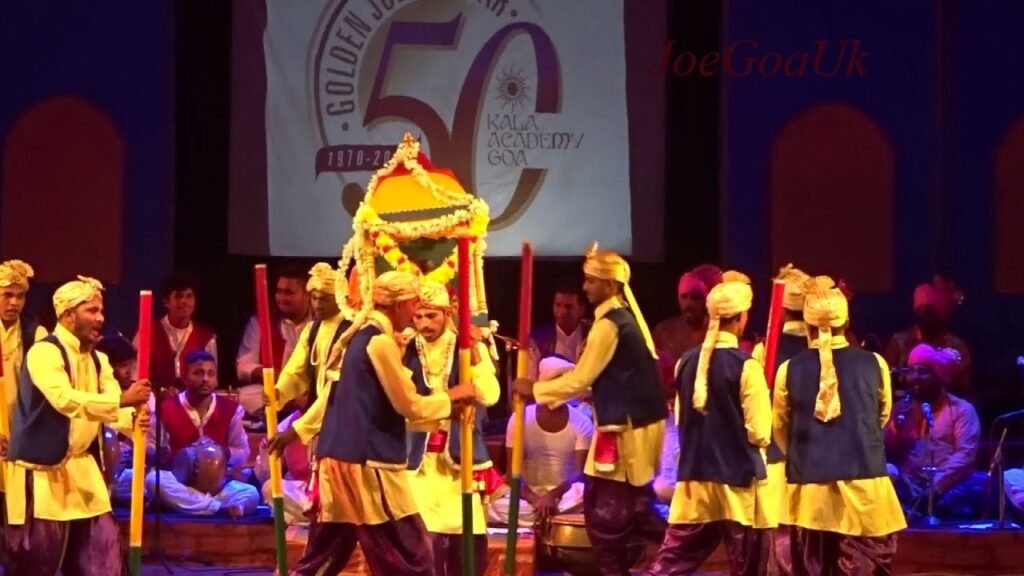
A war dance celebrating the victory of King Harihara II, of the Vijaynagar empire, over the Cholas. The performers are led by a senior Kshatriya gaunkar (villager) as the captor of a bear (symbolic of the Cholas) dressed in a well-worn black blanket and holding a fig branch.
8. Kunbi – Folk Dance in Goa
The earliest settlers of Goa, Kunbi are a sturdy tribal community that mostly reside in Salcete taluka. Their songs and dance belonging to the pre-Portuguese era are social and not religious.
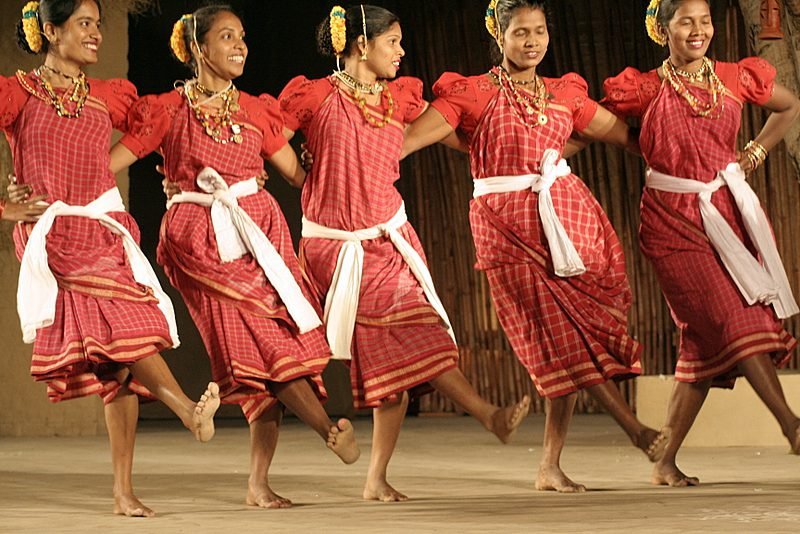
9. Divlyan Nach – Most Difficult to Perform amongst Goan Folk Dances
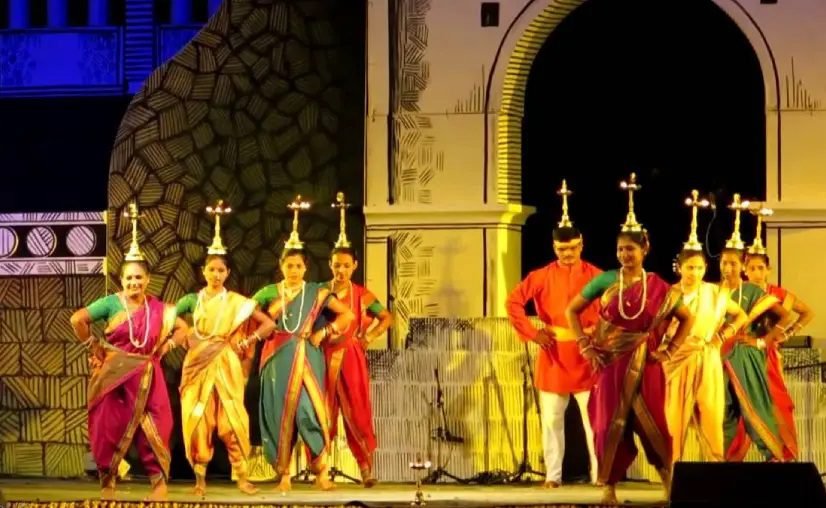
Could you balance a lit brass lamp on your head and dance gracefully to lilting music? This folk dance performed during the Shigmo festival does just that.
10. Veerbhadra – Traditional Play in Goa
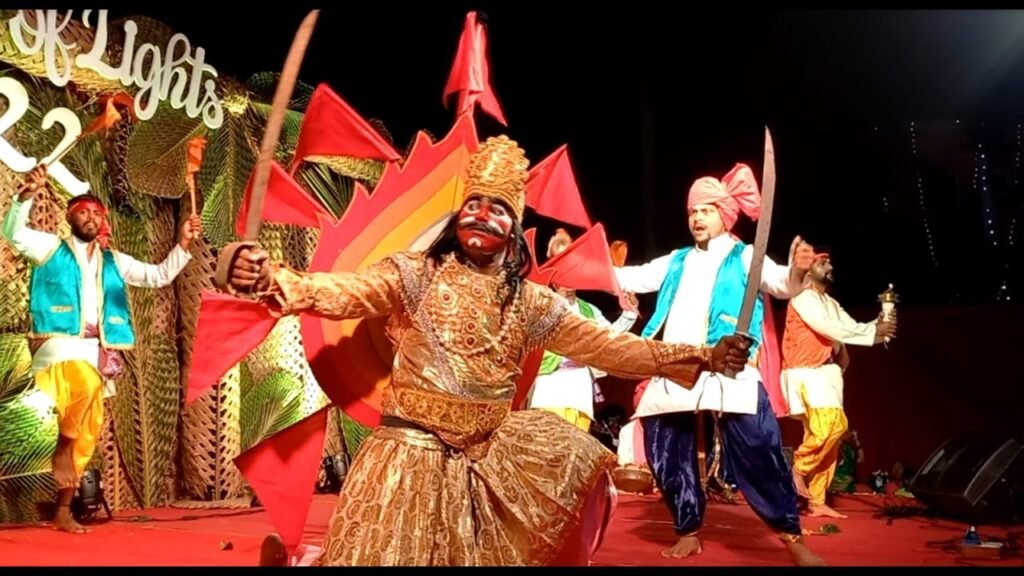
This folk dance is a tribute to Veerbhadra, an attendant of the Hindu God Shiva but widely regarded as the latter’s son. To the beats of the dhol (drum) and kasale (cymbals), an artist dressed in a royal ensemble flashes two swords in his hand as if he is preparing for a battle.
11. Romta Mel – Festivals in Goa
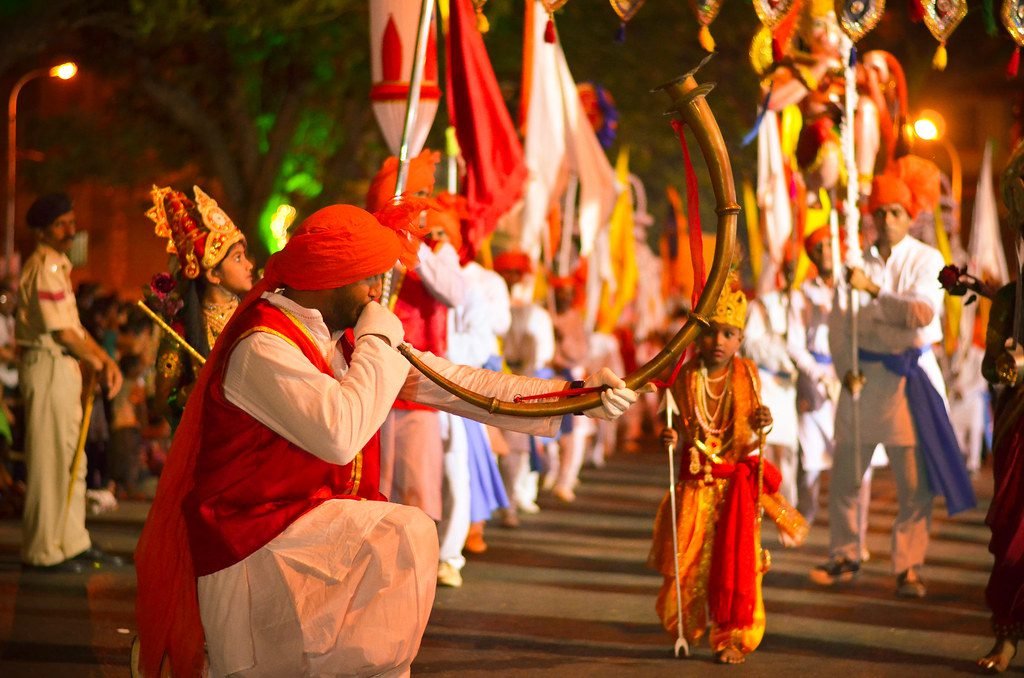
Romta Mel is a way for Goans to express their thanks to their Gods, accompanied by a serpentine procession of people marching their way to a temple.
12. Corredinho – Portuguese Influenced Dance Form in Goa
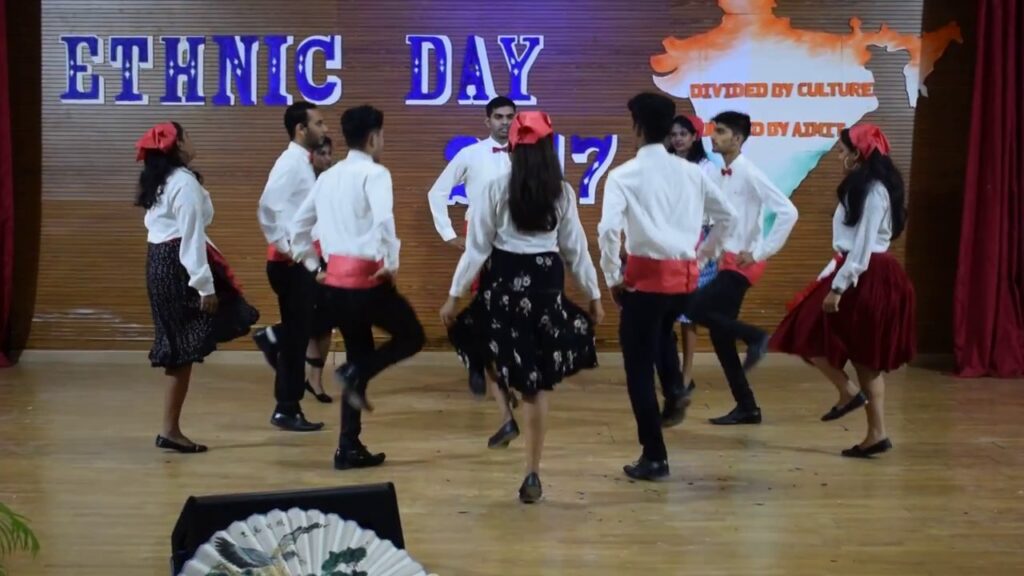
Another example of the Portuguese influence on Goan culture this dance—originating from the Algarve region of Portugal—involves six couples and some exquisite footwork.
13. Ghodemodni – Festival Dance in Goa
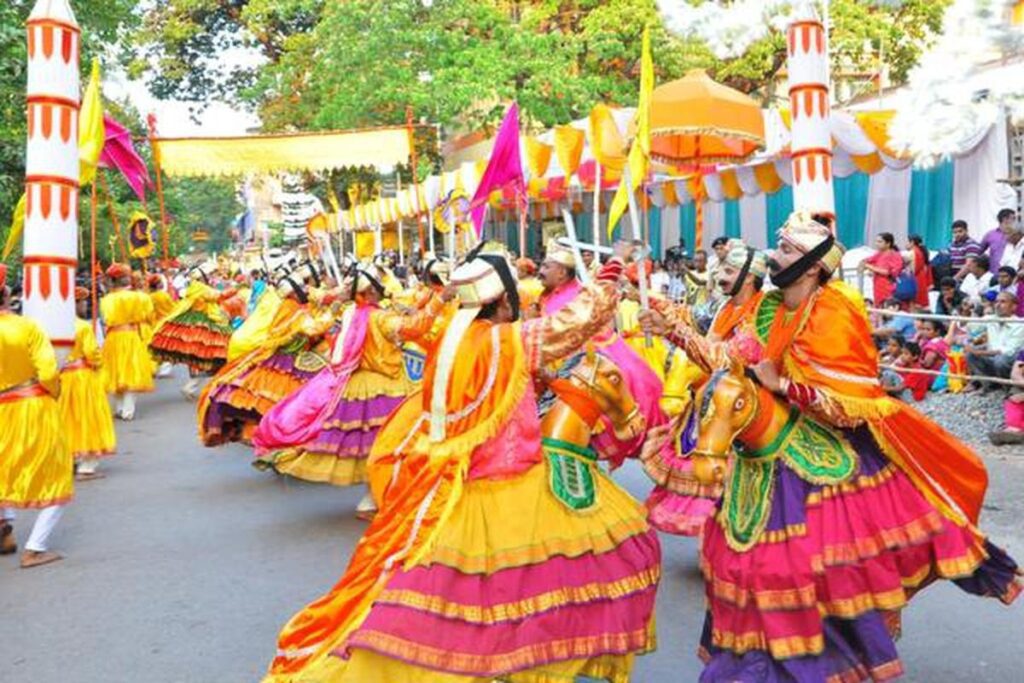
Ghode (horse) Modni (dance-like movements) is a spectacular warrior dance, so don’t forget to put on your party armour. Some say it commemorates the victory of the Ranes, the Maratha rulers of the Sattari taluka in Goa over the Portuguese.
Also read about Tribal Life of Goa in detail. And don’t forget to follow us on Instagram!


